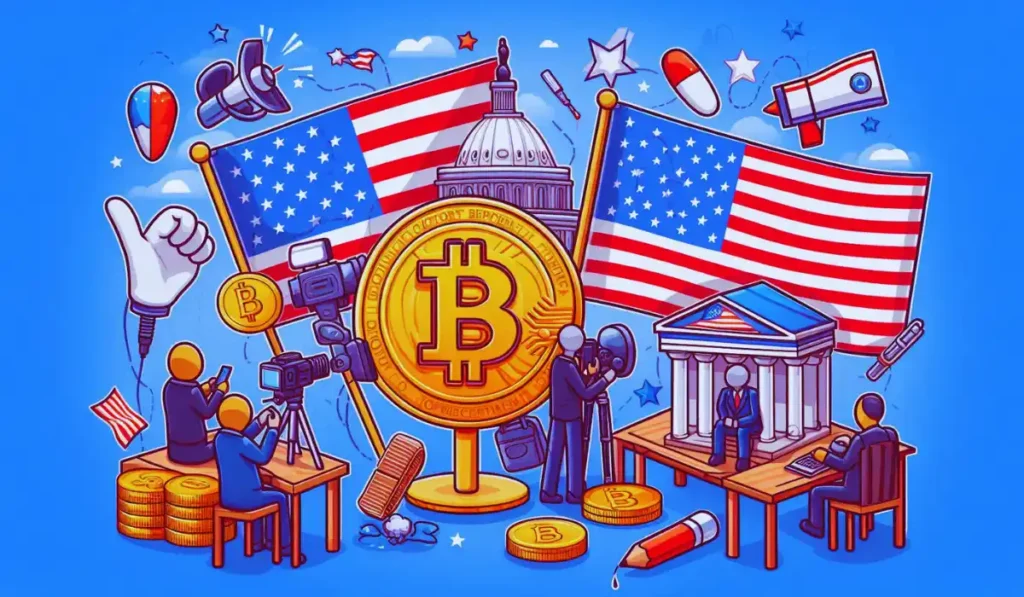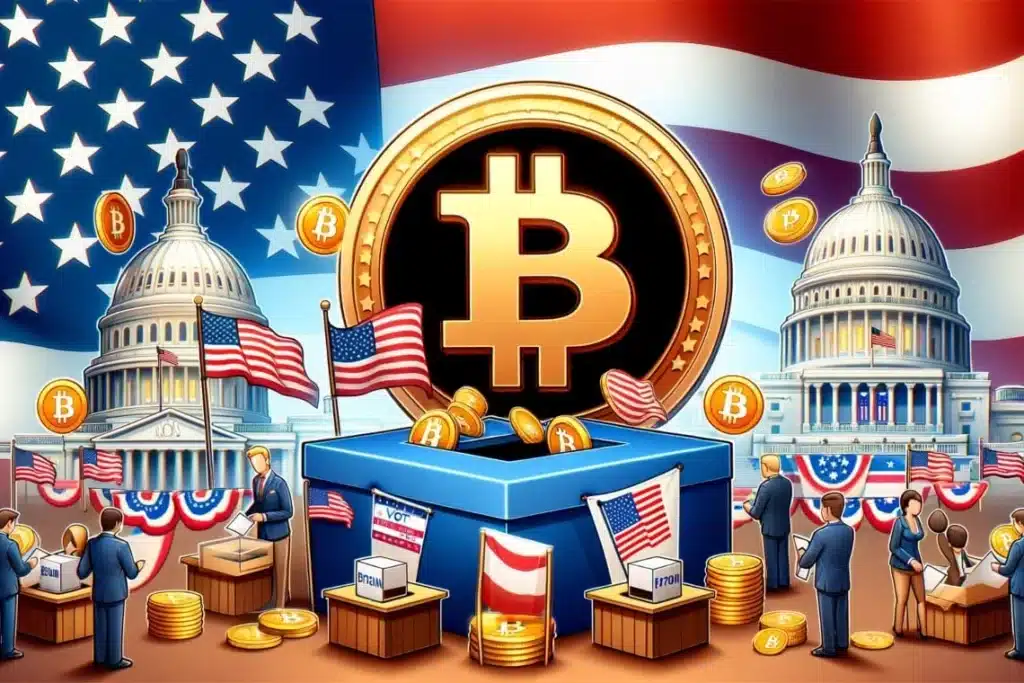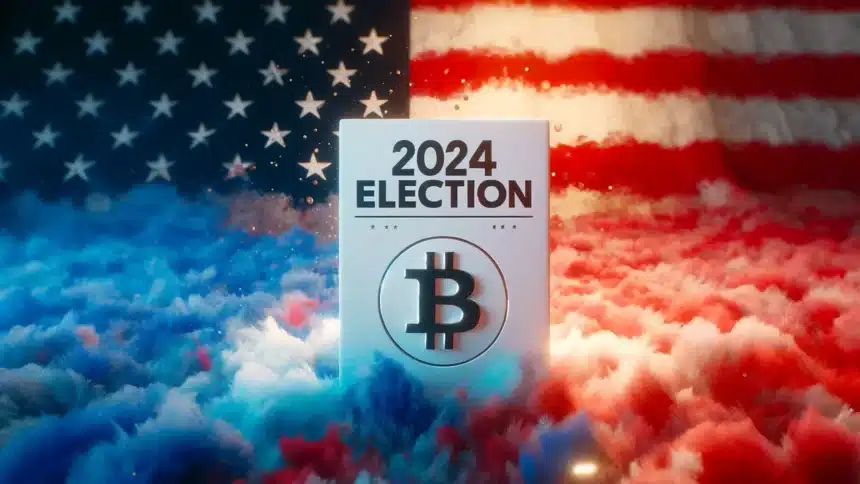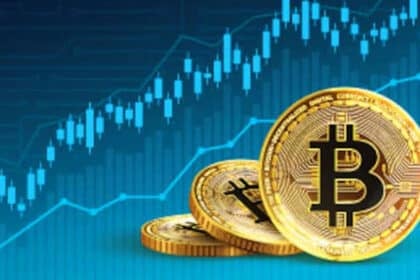As the 2024 US presidential election draws nearer, Bitcoin has unexpectedly become a focal point in political and financial circles. The intersection of Bitcoin and US Election 2024 is shaping up to be a game-changer for digital assets, potentially influencing both national strategy and economic policy discussions. Prominent figures in both the political and financial arenas are increasingly recognizing Bitcoin and US Election 2024 significance, signaling its rising prominence in the context of the upcoming election.
Bitcoin’s Growing Role in Political Strategy
The integration of Bitcoin into the discourse surrounding the 2024 US presidential election reflects a broader trend of increasing acceptance and significance of digital assets. Presidential candidates are now addressing Bitcoin and other cryptocurrencies as part of their campaign platforms, with some even proposing the idea of using Bitcoin as a national reserve asset. This shift highlights the changing landscape of political dialogue as cryptocurrencies gain mainstream traction.

Scott Melker, the host of The Wolf of All Streets Podcast, has observed Bitcoin’s remarkable evolution from a niche digital asset to a topic of serious discussion among presidential candidates. He points out that Bitcoin’s rapid growth and adoption are prompting political leaders to consider Bitcoin and US Election 2024 potential role in national economic strategies. Larry Fink, CEO of BlackRock, is among those advocating for Bitcoin, reflecting its increasing acceptance in traditional financial circles. The emergence of Bitcoin-related financial instruments, such as ETFs and tokenized assets, further underscores its integration into conventional finance.
Bill Miller, Chief Investment Officer and Portfolio Manager at Miller Value Partners, concurs with this view. He describes a recent Bitcoin conference as one of the most engaging events he has attended, highlighting the significance of presidential candidates and corporations endorsing Bitcoin as a strategic reserve asset. Miller notes that influential figures like MicroStrategy’s Michael Saylor have set a precedent, inspiring other organizations to adopt similar approaches toward Bitcoin and US Election 2024.
Bitcoin and US Election 2024: Global Implications of Bitcoin Adoption in US Politics
The potential for the US government to incorporate Bitcoin into its strategic reserves could have far-reaching global implications. As presidential contenders discuss the benefits of integrating Bitcoin into national economic policy, other nations are closely monitoring these developments. The connection between Bitcoin and US Election 2024 may influence how other countries approach cryptocurrencies in their political and economic spheres.

Scott Melker speculates that if the US or other major governments begin storing Bitcoin in their strategic reserves, it could prompt central banks worldwide to follow suit. Such a shift could fundamentally alter the structure of global finance, potentially reshaping economic power dynamics on an international scale.
Bill Miller offers a more optimistic perspective, suggesting that the first country to seriously invest in Bitcoin could emerge as a dominant global force in the coming century. This bold prediction underscores the transformative potential in the context of Bitcoin and US Election 2024 and highlights the broader implications for international finance and geopolitical power.
The Investment Landscape: Bitcoin’s Role in Election-Year Portfolios
As the election approaches, investors are adjusting their strategies based on the evolving relationship between Bitcoin and 2024 US presidential race. The cryptocurrency’s performance in the lead-up to the election could have significant implications for investment portfolios. Bill Miller praises Michael Saylor’s strategy of dollar-cost averaging into Bitcoin, noting the impressive returns of Bitcoin-related assets such as El Salvador’s bonds and MicroStrategy stocks.
This approach suggests that even at its current high valuation, Bitcoin may offer substantial market growth potential. Investors are increasingly viewing Bitcoin as a hedge against potential economic and political instability, particularly as the election approaches. Consequently, the connection between Bitcoin and 2024 US election continues to gain importance.

Institutional investors, previously hesitant, are now experiencing a shift in attitude towards Bitcoin and US Election 2024, driven by the fear of missing out (FOMO) phenomenon that initially affected individual investors. This shift could lead to greater institutional adoption of Bitcoin, potentially driving up its price and solidifying its position in mainstream financial transactions. As the relationship between Bitcoin and the US Election 2024 evolves, investors may need to reassess their holdings in light of the potential impact of political outcomes on the market.
Bitcoin and US Election 2024: The Dynamics
The intersection of Bitcoin and 2024 US presidential election represents a pivotal moment in both political and financial spheres. The growing interest in Bitcoin among politicians and investors highlights its increasing role in national strategy and economic policy. The potential global implications of Bitcoin adoption, coupled with its influence on investment strategies, underscore the cryptocurrency’s transformative potential.
As the election approaches, the dynamics between Bitcoin and political discourse will continue to unfold, shaping the future of digital assets and their place in global finance. Investors, policymakers, and industry leaders alike will be watching closely to gauge the impact of these developments. For ongoing updates and insights into the evolving relationship between Bitcoin and US Election 2024, stay tuned to TheBITJournal.





























